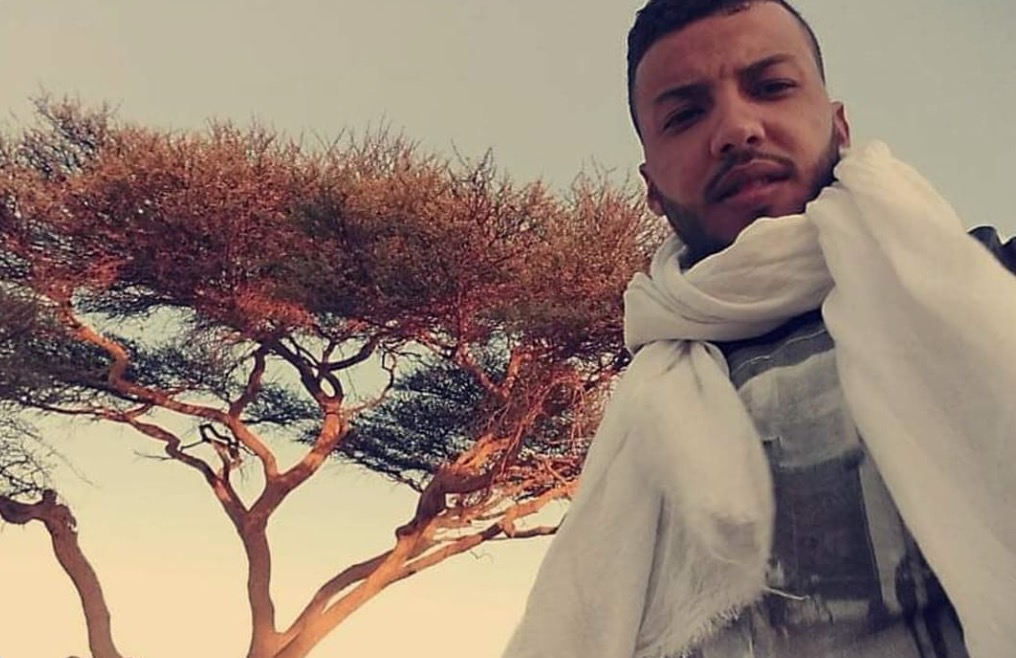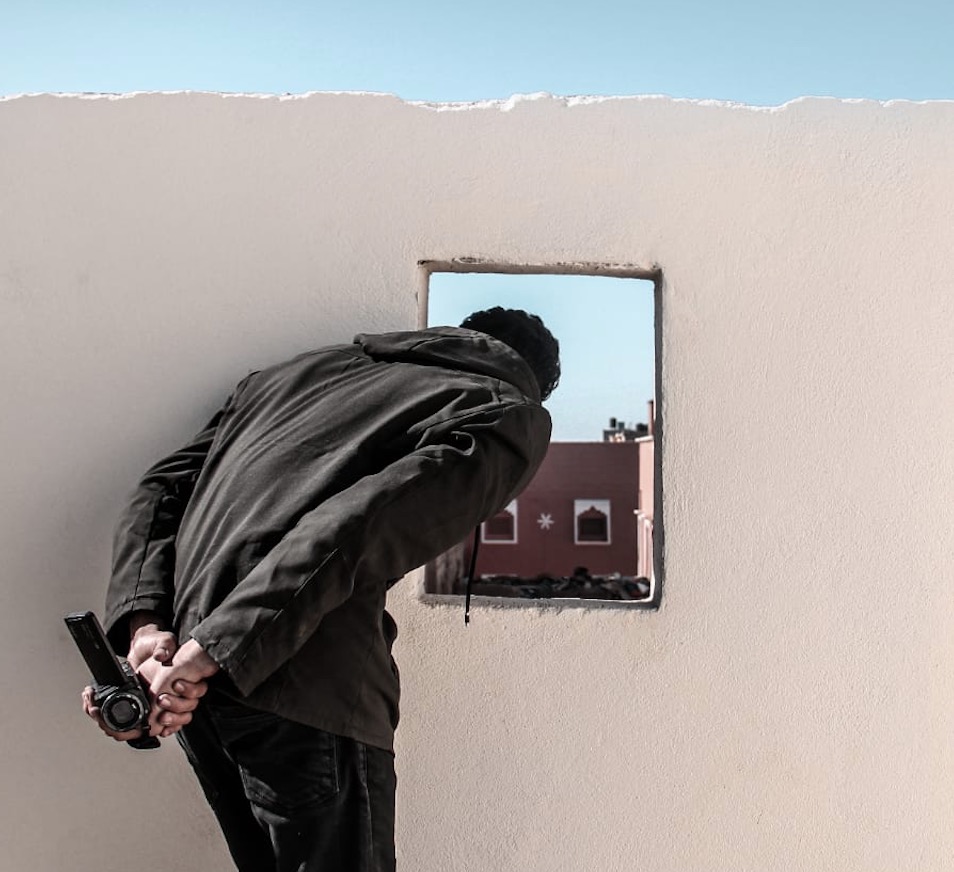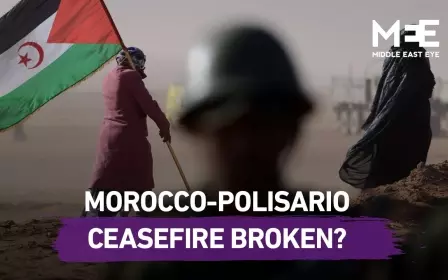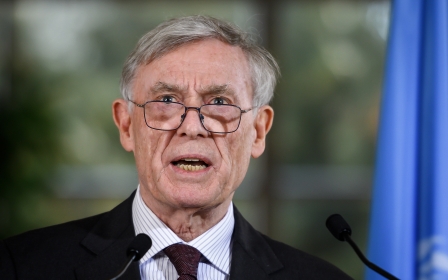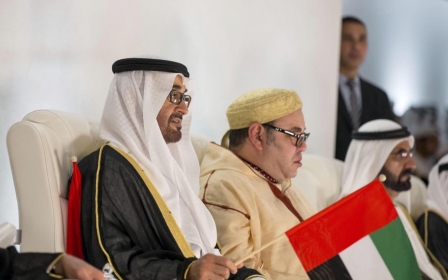Activists call for release of citizen journalist and campaigners in Western Sahara
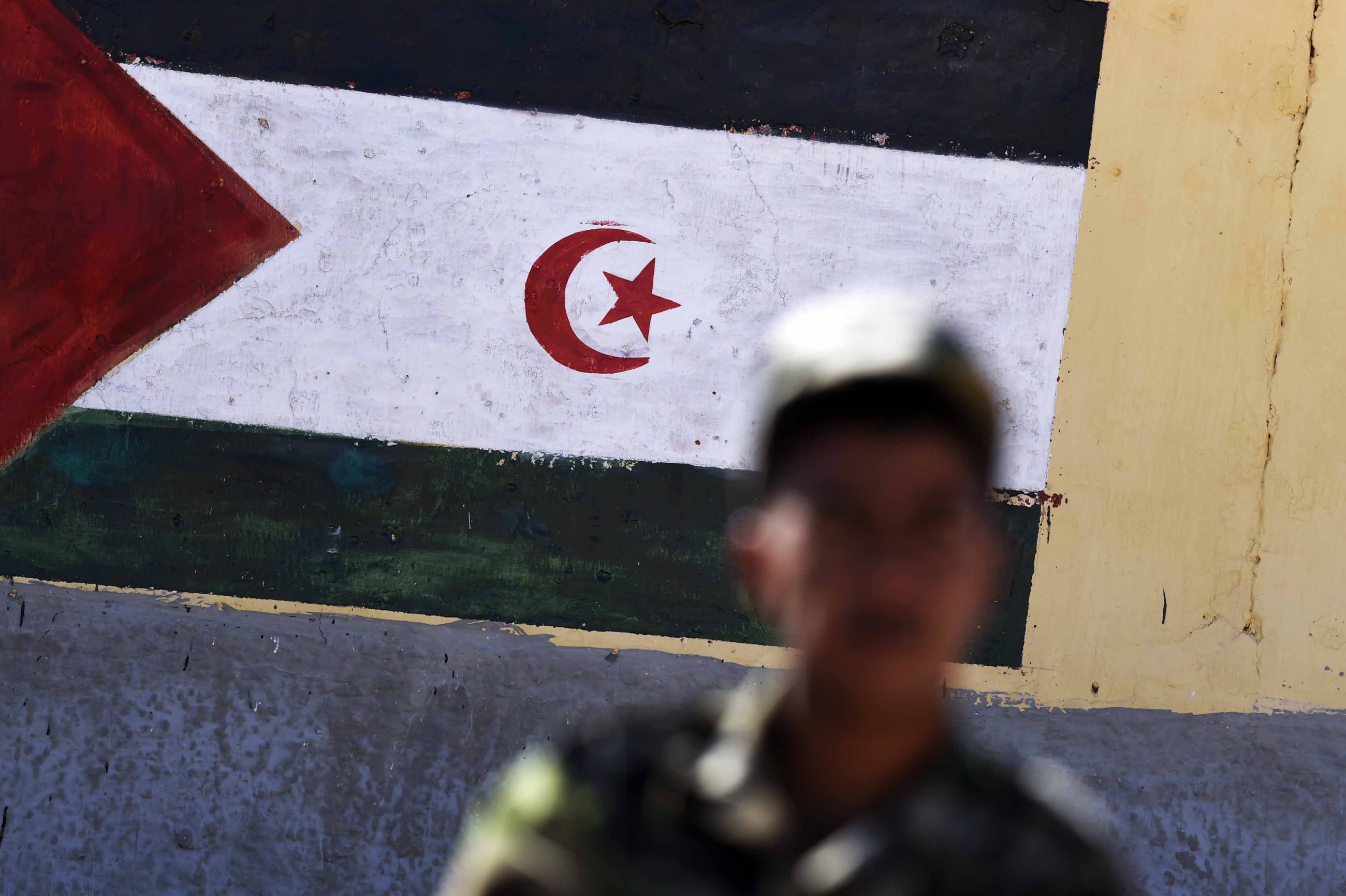
Activists are calling on Moroccan authorities to immediately drop charges against citizen journalist Ibrahim Amrikli as well as other journalists and activists in Western Sahara.
Amrikli, 23, covered protests and produced a number of videos that detailed human rights violations perpetrated by the Moroccan police against Sahrawi citizens during the past few years before he was arrested.
According to the Nushatta Foundation, a youth organisation that monitors the human rights situation in Western Sahara, Amrikli was arrested after being charged with offending public officials and breaching quarantine on 15 May.
The organisation has called on Morocco to drop all charges against Amrikli and urged the United Nations to fulfil its responsibility to protect Sahrawi citizen journalists.
In a statement, the foundation condemned the violence against activists and journalists, saying that many are subject to surveillance, defamation or detention.
New MEE newsletter: Jerusalem Dispatch
Sign up to get the latest insights and analysis on Israel-Palestine, alongside Turkey Unpacked and other MEE newsletters
"The Nushatta Foundation considers the arrest of its video journalist as evidence of systematic targeting aimed at its journalists who are reporting what takes place inside Western Sahara."
Amrikli is now on conditional release pending his next court appearance, which is due to take place in January.
A crackdown came shortly before Morocco signed a US-broked normalisation deal with Israel that will also see the United States recognising Moroccan sovereignty over Western Sahara.
Speaking to Middle East Eye from hiding, Amrikli explained what happened on the day of his arrest.
"I was on the way to the pharmacy when four plainclothes policemen got out of a car and asked me for my name, then took me away to the police headquarters with no other information.
"When I asked why I was being arrested, they said it was because I was involved in violent activity and was encouraging people to attack the police and insult officials.
"I was left alone in a room for five or six hours and was not allowed to have suhur [pre-dawn meal before fasting]. I was beaten and smacked during the investigation. My phone was taken, and they went through all my photos and messages, mocking me," he said.
During his detention, Amrikli said, he was forced under psychological and physical pressure to sign a police report admitting to the charges made against him.
"I was forced to sign papers that said I was involved in violence and breached quarantine laws. It was a very difficult and hard experience. There were a lot of contradictions. They said I was involved in drug trafficking and violence. It's clear that I was charged with fake charges," he said.
Amrikli said he is now living in fear due to the crackdown on activists and citizen journalists like himself. He also said he finds it very difficult to contact his family.
"I'm scared and worried. I want to find a way to get out of here and escape to Spain. I'm not ready to spend most of life in prison for something I didn't commit. Police are pressuring my family, and authorities are monitoring social media," he said.
"It is difficult to think that I will face my ending because of my very simple activism as a citizen journalist who is trying to fill in the gap on what international media are not able to cover. It is frustrating."
'Peaceful activism'
Western Sahara, a former Spanish colony, was claimed by Morocco in 1957 and is believed to have significant offshore oil reserves and mineral resources.
Its indigenous population has fiercely rejected Moroccan control, however, and between 1975 and 1991 the Polisario Front fought an insurgency against Rabat's presence.
Polisario estimates the indigenous population of Western Sahara to be between 350,000 and 500,000 and has long called for their right to a referendum on independence, something that has also been promised by UN resolutions.
Polisario has repeatedly accused Morocco of exploiting the region's natural resources while half of its population await a referendum in camps and in exile.
Mahmoud Lemaadel, an activist who regularly sheds light on violations in the Western Sahara region, said that he and other activists are frequently targeted.
"Moroccan occupying forces are targeting us and others because of our peaceful activism as citizen journalists who are exposing the human rights violations committed in the Western Sahara, which has not been accessible to the international media outlets. Therefore our work has been filling the gap," he told MEE.
According to Lemaadel, many activists and journalists are given vague charges once they are detained.
"People are targeted in different ways. For instance, subjection to violence in the streets, house arrest, defamation, the direct threat of police, and constant surveillance, smears, incitement on social media," he said.
"Many of the charges against people are to do with insulting officials at work, involvement in violence, drug trafficking or betrayal."
Amnesty International has previously called on Moroccan authorities to drop the charges against Amrikli.
"The circumstances of Ibrahim Amrikli's arrest, interrogation and charges suggest that he was targeted for his work as a citizen-journalist and human rights activist," Amnesty said in a statement.
Lemaadel expressed concern over the location of activists and journalists who have been detained by authorities.
"Amrikli is hidden now... we are deeply concerned and scared and feel like we are left to encounter our fate alone."
A student, 13-year-old Hayat Addia, told MEE that she was sexually harassed and interrogated after she was reported for having painted the flag of Western Sahara on her uniform.
"I went to school wearing uniform where I painted a big flag of Western Sahara... someone told the grade general, who called me in for questioning. He asked me where I consider myself to be based, and when I said Western Sahara he said this was wrong and that it should be the Moroccan flag instead of what I painted," she said.
"Suddenly they called my mum, and we were told we had to go to the police headquarters. They took my phone and found footage of Western Sahara protests, and told me that now I was in real trouble. I was taken to a basement, where I was insulted and yelled at and slapped."
Crying, Addia told MEE that the content on her phone was thoroughly investigated and later turned into documents to be used against her.
"They even investigated me about the contacts I have on my phone, like my friends. A plainclothes policeman also grabbed me, and I was taken to a room where I was told I was going to be raped. I was also given a big photo of the King of Morocco and told to kneel down and kiss it."
Activists and citizen journalists in Western Sahara now feel that they will be targeted even more following Trump's announcement on Thursday that the US is to recognise Western Sahara as part of the North African kingdom.
"This decision is against international law and charters, and it's impacting us deeply and widely as a community of activists based in the Moroccan-occupied territory of Western Sahara," said Lemaadel.
Last month, Moroccan forces and Polisario fighters clashed over a protest blocking a highway into Mauritania, with the Sahrawi movement declaring the 1991 ceasefire over.
Morocco's Royal Court said the US will open a consulate in the Western Sahara.
Last month, Bahrain, which normalised ties with Israel in September, also said it was opening a consulate in the territory.
Trump's announcement was denounced by Sahrawis.
"Simply, it's a green light to Morocco to maintain its military occupation in the last colony of Africa," said Lemaadel.
Middle East Eye delivers independent and unrivalled coverage and analysis of the Middle East, North Africa and beyond. To learn more about republishing this content and the associated fees, please fill out this form. More about MEE can be found here.


